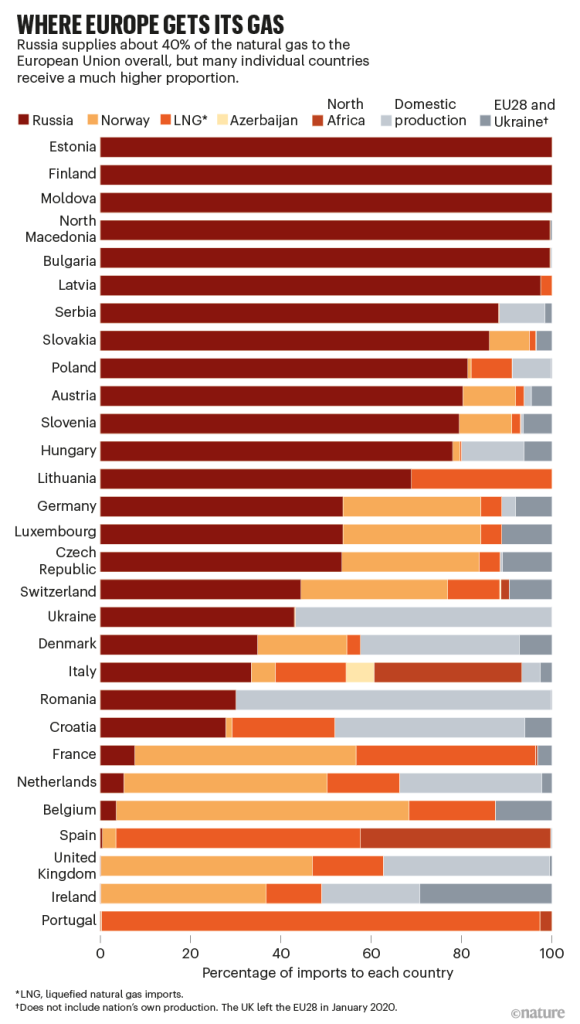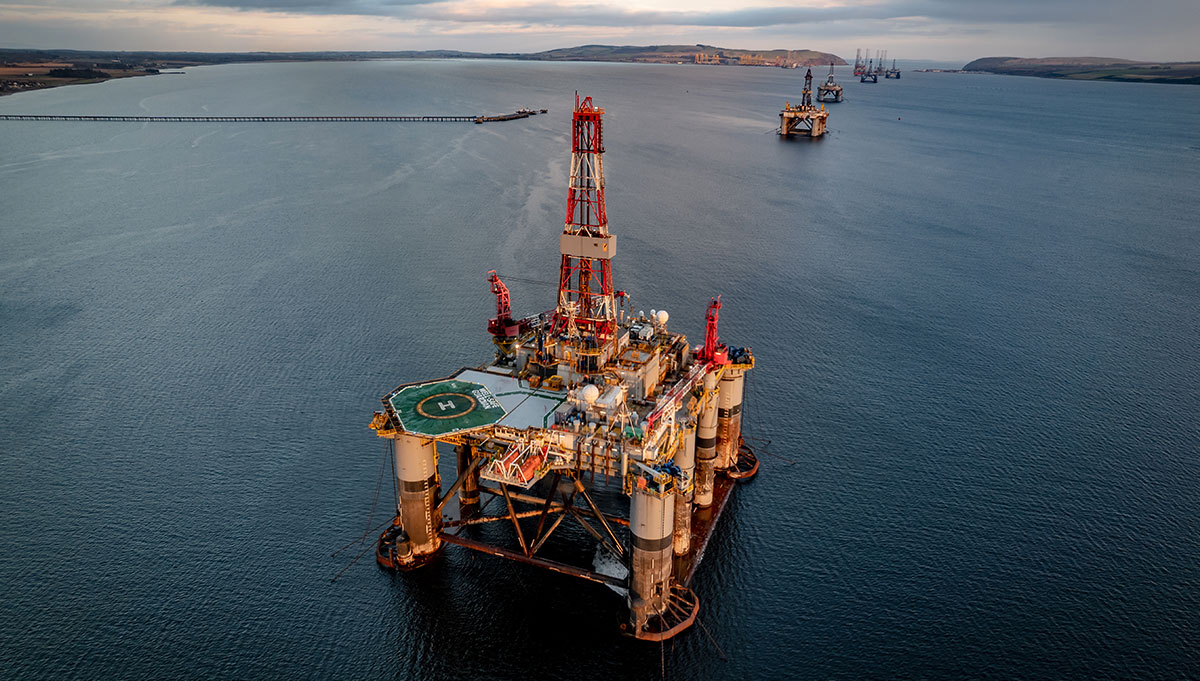The Russian invasion of Ukraine has roiled the markets of energy, undermining the geopolitical balance of the world.
One of the main consequences of the crisis is the exponential growth of oil and gas prices, brought to their highest levels in nearly a decade. In this context, many countries were forced to reconsider their energy supplies.
Russia is the world’s largest oil and gas exporter, and its natural gas fuels the economy of the EU. Recently, the United States, Canada, the European Union and others have imposed massive economic sanctions on Russia, announcing plans to become independent from Russian gas and oil.

Sources: Bruegel/European Network of Transmission System Operators for Gas/Eurostat/UK Government/Government of Ukraine
The United States and the United Kingdom were the first major countries to ban Russian oil, and others are following their lead. Other countries, such as Italy, the Netherlands and Germany, are trying to take advantage of this critical situation, turning to ecological solutions.
In fact, Russia’s invasion has caused a short-term spike in prices, but could prompt a long-term shift towards sustainability. But the challenges the sector has to face are not limited to this.
The challenges of the oil and gas industry
The oil and gas sector now faces three major challenges, and the war in Ukraine is compounding them.
The first is to produce more energy at lower costs with less emissions. Producing oil at a lower cost to stay competitive on the market is one of the industry’s major challenges.
The global population is increasing, and energy demand will also increase. Optimising production systems and environmental utilities on currently operating sites is therefore a priority for the oil industry. This maximises the production, reduces the costs of extraction and refine the exploration costs.
The second one consists in improving the performance to ensure the valorization of assets. Oil companies are looking to extend the life of mature sites but are also compelled to seek new sources of oil or gas.
On the other hand, the extraction, transport and refining are much more complex and costly. For this reason, the companies aim to achieve the complete reliability of their plant.
The third challenge consists in improving the environmental footprint to meet increasingly stringent standards. The demand for cleaner energy is increasing, and oil and gas companies must supply this energy with less emissions.
It will take time, but there is a clear path to get to the zero emissions goal by 2050 or sooner.
Source: forbes.com


